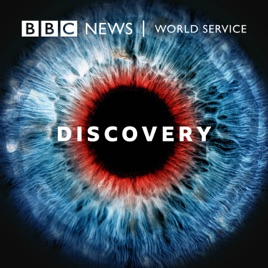
Advertise on podcast: Discovery
Rating
4.4 from
Country
This podcast has
302 episodes
Language
Publisher
Explicit
No
Date created
2008/06/24
Average duration
30 min.
Release period
7 days
Description
Explorations in the world of science.
Social media
Check Discovery social media presence
Podcast episodes
Check latest episodes from Discovery podcast
The Life Scientific: Michael Woolridge
2024/02/19
Humans have a long-held fascination with the idea of Artificial Intelligence (AI) as a dystopian threat - from Mary Shelley's Frankenstein, through to the Terminator movies. But somehow, we still often think of this technology as 'futuristic', whereas in fact, it's already woven into the fabric of our daily lives, from facial recognition software to translator apps.
And if we get too caught up in the entertaining sci-fi narrative around AI and the potential threat from machines, there is a more pressing danger that we overlook real and present concerns - from deep fakes to electoral disinformation.
Michael Wooldridge is determined to demystify AI and explain how it can improve our lives, in a whole host of different ways. A professor of Computer Science at the University of Oxford, and the director of Foundational AI Research at the Alan Turing Institute, Mike believes the most common fears around this technology are "misplaced".
In a special 300th edition of The Life Scientific, recorded in front of an audience at London's Royal Institution (RI), Mike tells Jim al-Khalili how he will use this year's prestigious RI Christmas Lectures to lift the lid on modern AI technology and discuss how far it could go in future. Mike also reminiscences about the days when sending an email was a thrilling novelty, discusses why people love talking to him about the Terminator at parties, and is even challenged to think up a novel future use of AI by ChatGPT.
Presenter: Jim al-Khalili
Producer: Lucy Taylor
Audio editor: Sophie Ormiston
Production co-ordinator: Jonathan Harris
more
The Life Scientific: Mercedes Maroto-Valer
2024/02/12
How do you solve a problem like CO2?
As the curtain closes on the world’s most important climate summit, we talk to a scientist who was at COP 28 and is working to solve our carbon dioxide problem.
Professor Mercedes Maroto-Valer thinks saving the planet is still Mission Possible - but key to success is turning excess of the climate-busting gas, carbon dioxide, into something useful. And as Director of the Research Centre for Carbon Solutions at Heriot-Watt University and the UK’s Decarbonisation Champion, she has lots of innovative ideas on how to do this.
She also has a great climate-themed suggestion for what you should say when someone asks your age…
Presenter: Jim Al-Khalili
Producer: Gerry Holt
Audio editor: Sophie Ormiston
Production Co-ordinator: Jonathan Harris
more
The Life Scientific: Sir Harry Bhadeshia
2024/02/05
The Life Scientific zooms in to explore the intricate atomic make-up of metal alloys, with complex crystalline arrangements that can literally make or break structures integral to our everyday lives. Professor Sir Harry Bhadeshia is Professor of Metallurgy at Queen Mary University of London and Emeritus Tata Steel Professor of Metallurgy at the University of Cambridge. He’s been described as a ‘steel innovator’ – developing multiple new alloys with a host of real-world applications, from rail tracks to military armour. Harry’s prolific work in the field has earned him widespread recognition and a Knighthood; but it's not always been an easy ride... From his childhood in Kenya and an enforced move to the UK as a teenager, to the years standing up to those seeking to discredit the new path he was forging in steel research - Jim Al-Khalili discovers that Harry's achievements have required significant determination, as well as hard work.
Presenter: Jim Al-Khalili
Producer: Lucy Taylor
Audio editor: Sophie Ormiston
Production Co-ordinator: Jonathan Harris
more
The Life Scientific: Cathie Sudlow
2024/01/29
“Big data” and “data science” are terms we hear more and more these days. The idea that we can use these vast amounts of information to understand and analyse phenomena, and find solutions to problems, is gaining prominence, both in business and academia. Cathie Sudlow, Professor of Neurology and Clinical Epidemiology at the University of Edinburgh, has been at the forefront of enabling health-related research using ever-increasing datasets. She tells presenter Jim Al-Khalili why this type of research matters and how the COVID-19 pandemic changed attitudes towards data in healthcare. Over the course of her career, Cathie has held a variety of roles at different organisations, and she is currently Chief Scientist and Deputy Director at Health Data Research UK. She believes that there is no room for prima donnas in science, and wants her field to be open and collaborative, to have the most impact on patients’ lives.
Presenter: Jim Al-Khalili
Producer: Florian Bohr
Production Co-ordinator: Jonathan Harris
more
The Life Scientific: Sir Michael Berry
2024/01/22
Professor Jim Al-Khalili meets one of Britain's greatest physicists, Sir Michael Berry. His work uncovers 'the arcane in the mundane', revealing the science that underpins phenomena in the world around us such as rainbows, and through his popular science lectures he joyfully explains the role of quantum mechanics in phones, computers and the technology that shapes the modern world. He is famed for the 'Berry phase' which is a key concept in quantum mechanics and one Sir Michael likes to explain through an analogy of holding a cat upside down and dropping it, or parallel parking a car.
Presenter: Jim Al-Khalili
Studio Producer: Tom Bonnett
Audio Editor: Gerry Holt
Production Co-ordinator: Jonathan Harris
more
The Life Scientific: Sarah Harper
2024/01/15
People around the world are living longer and, on the whole, having fewer children. What does this mean for future populations? Sarah Harper CBE, Professor in Gerontology at the University of Oxford, tells presenter Jim Al-Khalili how it could affect pensions, why it might mean we work for longer, and discusses the ways modern life is changing global attitudes to when we have children, and whether we have them at all. Fertility and ageing have been Sarah's life's work and she tells her story of giving up a career in the media to carry out in-depth research, and going on to study population change in the UK and China, setting up the Oxford Institute of Population Ageing and later becoming a Scientific Advisor to UK Government.
Presenter: Jim Al-Khalili
Producer: Tom Bonnett
Production Co-ordinator: Jonathan Harris
more
The Life Scientific: Sarah Blaffer Hrdy
2024/01/08
Our primate cousins fascinate us, with their uncanny similarities to us. Studying other apes and monkeys also helps us figure out the evolutionary puzzle of what makes us uniquely human. Sarah Blaffer Hrdy’s work brings a female perspective to this puzzle, correcting sexist stereotypes like the aggressive, philandering male and the coy, passive female.
Sarah is professor emerita of anthropology at the University of California, Davis, and studies female primate behaviour to create a richer picture of our evolutionary history, as well as what it means to be a woman or a parent today. Her overarching aim is to understand the human condition, a goal she initially planned to pursue by writing novels. Instead, she found her way into science: her ground-breaking study of infanticide among langur monkeys in northern India overturned assumptions about these monkeys’ murderous motivations. Later in her career, she looked into reproductive and parenting strategies across species. We humans are primed by evolution, she believes, to need a lot of support raising our children. And that is a concern she found reflected in her own life, juggling family commitments with her career ambitions as a field researcher, teacher, and science writer.
more
The Life Scientific: Edward Witten
2024/01/01
The Life Scientific returns with a special episode from the USA; Princeton, New Jersey, to be precise. Here, the Institute for Advanced Study has hosted some of the greatest scientific minds of our time - Einstein was one of its first professors, J. Robert Oppenheimer its longest-serving director - and today's guest counts among them. Edward Witten is professor emeritus at the institute and the physicist behind M-Theory, a leading contender for what is commonly referred to as ‘the theory of everything’, uniting quantum mechanics and Einstein’s theory of gravity. He talks to Jim al-Khalili about a career that’s spanned some of the most exciting periods in modern theoretical physics - and about one particular problem that has obsessed and eluded him since his days as a student.
Producer: Lucy Taylor
more
What's stopping us from exercising in older age?
2023/12/25
Exercise in older age is high on the agenda, but the idea that with age comes bags of time and a desire to ‘get out there’ isn’t true for a lot of us. How do you juggle exercise around caring for partners, grandchildren or staying in work? What if you haven’t exercised for years? What can your body take, and how has it changed with age? James Gallagher hears how octogenarian athlete ‘Irongran’ keeps going, he explores the mental and physical barriers that stop us exercising and he finds out what he might feel like in 40 years as he pulls on an ageing suit.
(Photo: Elderly man going for a run. Credit: Charday Penn / Getty Images)
more
When does sitting become bad for health?
2023/12/18
How many hours do you spend sitting down per day? Six? Maybe eight? Or 10? Between commuting, working and relaxing, sitting can soon add up to hours and hours. James Gallagher delves into the science to find out exactly how much sitting is too much; when does it become worrying for our health? James visits a lab to explore what prolonged sitting does to the body and he’ll find out whether there’s anything you can do to offset the effects of sitting a lot. We’ll hear about the origins of sitting research - and just because we like to explore every angle on a topic, we’ll hear all about why standing too much can also be a worry.
(Photo: Woman sitting at desk in office. Credit: Richard Drury / Getty Images)
more
Putting the Mouth Back into the Body
2023/12/12
A look at the evidence that links the health of our mouths with the rest of our bodies.
Tooth and Claw: Cheetahs
2023/12/11
Adam Hart investigates the fastest land animal in the world – the cheetah! Built for high-speed chases, these spotted cats are slender, with semi-retractable claws for good grip and a flexible spine plus a long tail for balance and manoeuvrability. Cheetahs rely on speed over brute strength when hunting – and can make tight, quick turns to shift course in fast pursuit of their prey. But with shrinking populations cheetahs are classified as vulnerable – so what’s being done in terms of conservation and are these projects having any success?
Adam hears how cheetahs differ from lions and leopards and learns about their relationships with other predators. He looks at their unique adaptions and behaviours, as well as the different approaches that conservationists are undertaking to try and reverse the population decline. And we also hear about the re-introduction of cheetahs to India.
Contributors:
Professor Sarah Durant is from the Zoological Society of London and is project leader of the Africa Range-Wide Cheetah Conservation Initiative.
Vincent van der Merwe is director of The Metapopulation Initiative and is cheetah metapopulation coordinator for Southern Africa and India.
Presenter: Professor Adam Hart
Producer: Jonathan Blackwell
Editor: Holly Squire
Production Coordinator: Jonathan Harris
Studio Manager: Andrew Garratt
(Photo: Cheetah, Credit: Paul & Paveena Mckenzie via Getty Images)
more
Podcast reviews
Read Discovery podcast reviews
marketpop
2023/06/12
Sperm Counts
Nature’s way of controlling over breeding which is the primary cause of the decimation of the earth. Its a great sign. No harm no foul.
eb ramírez
2023/10/31
Awesome
Love every episode
blindGuyJoe
2023/05/17
Thanks, James! Maggots are my heroes!
Where do I get the T-shirt??
Bexterjohn
2023/01/03
Shame on you BBC
Shame on you for having Qanon commercials on your platform. They are a horrible conspiracy group spreading hate and fear and foolishness. Shame on you
fixtion fan
2022/04/22
Very well done.
For me, I love the tone of this series of episodes. Great information put forward by folks who are obviously well educated on the topics, and who are ...
more
Chuideus
2019/11/12
Highlighting Scientists works
I love that your using time to highlight scientists their jobs and have to talk on their point view. Keep them coming.
StarSharon
2021/05/11
Great
I love the information I get from this podcast. The speakers all have nice voices and the research is tops. I’m glad I subscribed.
NC_Listener
2020/05/16
Disappointed in the COVID19 episode
Listened hoping to learn more about COVID19. Unfortunately, the majority of the episode was leftist ranting from Lisa Cooper of Johns Hopkins Universi...
more
Fast Aging Activist
2019/09/29
Love
Love the Fly Gal, learned so much from it.
WWaldenHenry
2019/07/13
Great Stuff
Easy to listen to, informative, not so stiff, fun yet serious.
Podcast sponsorship advertising
Start advertising on Discovery & sponsor relevant audience podcasts
You may also like these science Podcasts
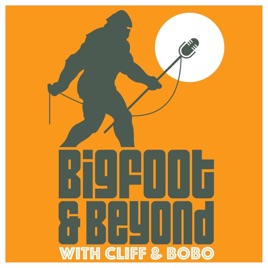
4.7
1606
260
Bigfoot and Beyond with Cliff and Bobo
Bigfoot and Beyond LLC

4.7
136
131
Raising Health
Andreessen Horowitz
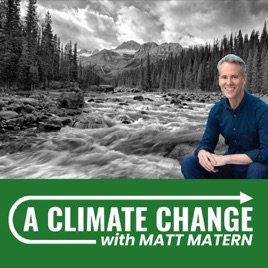
4.1
14
145
A Climate Change with Matt Matern
Verified: Matt Matern's Environmental Advocacy Podcast
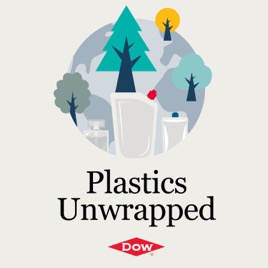
4.6
9
17
Plastics Unwrapped
Maithreyi Seetharaman

3.9
60
118
Math & Physics Podcast
Parker Levesque, Rayhan Walia

4.6
511
605
Psychedelics Today
Psychedelics Today
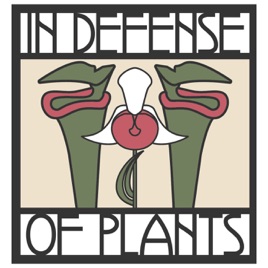
4.8
1134
102
In Defense of Plants Podcast
In Defense of Plants

4.9
2453
307
19 Keys Presents High Level Conversations
EYL Network

4.7
475
145
The Clinical Problem Solvers
The Clinical Problem Solvers

4.3
73
136
Rule Your Pool
Orenda Technologies, Eric Knight



